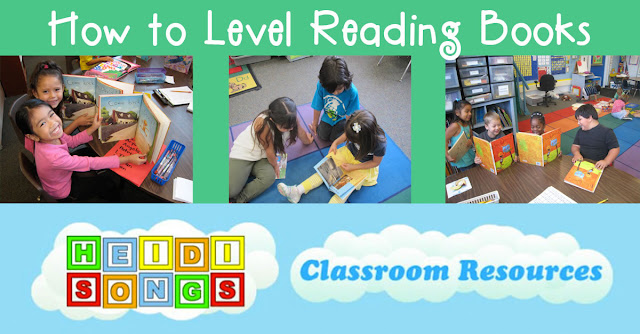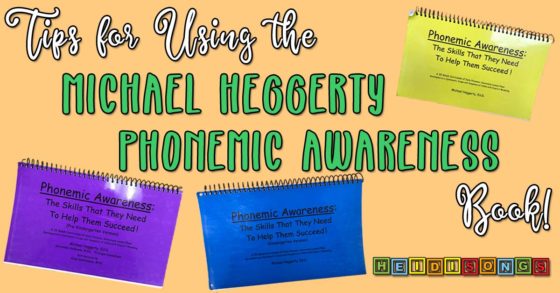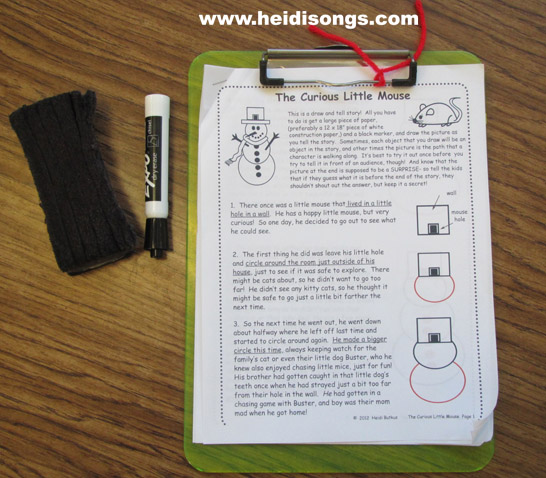Leveling Reading Books
Have you heard the news? We've Moved to HeidiSongs.tv!
Our new website features an online video streaming service, updated blog posts at Heidisongs.blog, and a wealth of fresh resources designed to make learning even more fun and engaging.
You can also continue shopping for our educational products there and at our Teachers Pay Teachers store!
Head over to HeidiSongs.tv now and explore all the exciting new features.
See you there!
__________________________________________________________________________
Recently, someone asked me how to correctly identify the reading level of a book, and what levels were appropriate for Kindergarten. So I thought that I would share this information on my blog, just in case anyone else out there was wondering, too. I am always interested to hear what reading levels are expected of Kindergarten children in different parts of the country, so if you would like to comment and share what levels are expected at your school, please do so!
There are several different systems for leveling books. If you look on this site, http://bookwizard.scholastic.com, you can easily see the difference. First, look in the upper right corner of the page for these words:
Grade Level Equivalent
Lexile Framework for Reading
Guided Reading
DRA (Developmental Reading Assessment)
These are four different systems of leveling books. In other words, what we have here are four different ways of saying the same thing. All you have to do is type in the name of a book that you want to level, and then select one of these systems. Then the website searches for that book and tells you its level. Of course, you won't find every book in the system, but there are lots of them there.
For example, if I type in the book, "Biscuit" and set the leveling system at Guided Reading Level, I find that my book is Guided Reading Level F. If I change the system to DRA and then press "set," it changes the level of my Biscuit book to DRA 9-10. If I change it to Grade Level Equivalent, then it is 1.5, meaning grade one, fifth month. If I change it to Lexile framework, then it changes to 190L. Don't ask me what that means!
But what is important to me is that I am very pleased when I can get a group of my kindergarten kids to read a Biscuit book by December or January. Many kids will never get there in K, at least at my school. And of course, many kids are able to go much further! It depends a lot on the child and the type of preschool experiences he or she has had, and if there are any literacy experiences going on at home, etc. Many teachers try to level all of the reading books in their classroom and keep them separated into bins, and direct children to certain levels of books that they would consider to be a good fit to the child’s reading level.
At my school, children that are able to read a Guided Reading Level F book (such as Biscuit) sometime before the end of the year with reasonable fluency are usually considered to be reading above grade level. In an average class of 22 students, there are usually 5-7 children that easily reach that goal by February, and another group of 5-6 children that can get there by May, provided that they are motivated and their parents are also reading with them at home. The rest of the children are usually able to read simple books with just sight words and CVC words that they have been introduced to. Of course, there are usually also a few children that are struggling with other issues, and who are still just learning to decode words and build a small sight word vocabulary at the end of the year. These children are usually considered to be functioning below grade level if this is all that they can do by the end of the school year.
----------------------------------
Follow me! Did you enjoy this post? Do me a favor and share it with your friends! And follow this blog by signing up for my email updates, or follow on Bloglovin', or follow me on TPT! I'm also on Pinterest, Facebook, Twitter, Instagram, Google+ and YouTube, too! Don't forget to sign up for our email newsletter (at the bottom of this page) for special deals and promo codes that you won't find out about anywhere else.
There are several different systems for leveling books. If you look on this site, http://bookwizard.scholastic.com, you can easily see the difference. First, look in the upper right corner of the page for these words:
Grade Level Equivalent
Lexile Framework for Reading
Guided Reading
DRA (Developmental Reading Assessment)
These are four different systems of leveling books. In other words, what we have here are four different ways of saying the same thing. All you have to do is type in the name of a book that you want to level, and then select one of these systems. Then the website searches for that book and tells you its level. Of course, you won't find every book in the system, but there are lots of them there.
For example, if I type in the book, "Biscuit" and set the leveling system at Guided Reading Level, I find that my book is Guided Reading Level F. If I change the system to DRA and then press "set," it changes the level of my Biscuit book to DRA 9-10. If I change it to Grade Level Equivalent, then it is 1.5, meaning grade one, fifth month. If I change it to Lexile framework, then it changes to 190L. Don't ask me what that means!
But what is important to me is that I am very pleased when I can get a group of my kindergarten kids to read a Biscuit book by December or January. Many kids will never get there in K, at least at my school. And of course, many kids are able to go much further! It depends a lot on the child and the type of preschool experiences he or she has had, and if there are any literacy experiences going on at home, etc. Many teachers try to level all of the reading books in their classroom and keep them separated into bins, and direct children to certain levels of books that they would consider to be a good fit to the child’s reading level.
At my school, children that are able to read a Guided Reading Level F book (such as Biscuit) sometime before the end of the year with reasonable fluency are usually considered to be reading above grade level. In an average class of 22 students, there are usually 5-7 children that easily reach that goal by February, and another group of 5-6 children that can get there by May, provided that they are motivated and their parents are also reading with them at home. The rest of the children are usually able to read simple books with just sight words and CVC words that they have been introduced to. Of course, there are usually also a few children that are struggling with other issues, and who are still just learning to decode words and build a small sight word vocabulary at the end of the year. These children are usually considered to be functioning below grade level if this is all that they can do by the end of the school year.
----------------------------------
Follow me! Did you enjoy this post? Do me a favor and share it with your friends! And follow this blog by signing up for my email updates, or follow on Bloglovin', or follow me on TPT! I'm also on Pinterest, Facebook, Twitter, Instagram, Google+ and YouTube, too! Don't forget to sign up for our email newsletter (at the bottom of this page) for special deals and promo codes that you won't find out about anywhere else.












